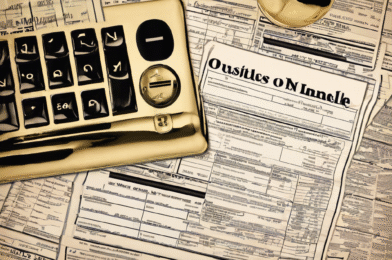In times of market downturns, many investors face uncertainty and anxiety about their financial future. The volatility in the stock market can be intimidating, leading some to make impulsive decisions that may not be in their best interest. However, there are strategies that can help investors navigate these challenging times and invest safely during a market downturn.
One key principle to keep in mind during a market downturn is to stay calm and avoid making hasty decisions based on fear. It’s important to remember that market downturns are a normal part of the economic cycle and that staying invested for the long term can help weather these fluctuations.
Diversification is another crucial strategy for investing safely during a market downturn. By spreading your investments across different asset classes, industries, and regions, you can reduce the impact of a downturn on your overall portfolio.
Having a well-thought-out investment plan in place can also help safeguard your investments during turbulent times. Setting clear financial goals, determining your risk tolerance, and regularly reviewing and adjusting your portfolio can help you stay on track.
During a market downturn, it’s essential to focus on quality investments that have strong fundamentals and a track record of stability. Avoid chasing high-risk, speculative investments that may be more vulnerable to market volatility.
Rebalancing your portfolio regularly is another important step to take during a market downturn. By selling overperforming assets and buying undervalued ones, you can maintain the desired asset allocation and potentially capitalize on buying opportunities.
Building an emergency fund separate from your investments can provide a financial safety net during a market downturn. Having cash reserves to cover unexpected expenses can help prevent you from having to sell investments at a loss.
Staying informed about market trends and economic indicators can also help you make informed investment decisions during a downturn. Keeping up-to-date with financial news and seeking advice from trusted sources can provide valuable insights.
Seeking guidance from a financial advisor or investment professional can offer personalized advice tailored to your individual financial situation and goals. A professional can help you navigate market downturns and make informed decisions based on your specific needs.
Avoiding emotional decision-making is crucial when investing during a market downturn. Fear and panic can cloud judgment and lead to impulsive actions that may not align with your long-term financial goals.
Maintaining a long-term perspective is key to successful investing during market downturns. Remember that downturns are temporary, and staying focused on your long-term financial objectives can help you weather the storm.
Taking advantage of dollar-cost averaging can be a smart strategy during a market downturn. By investing a fixed amount regularly, regardless of market conditions, you can potentially lower the average cost of your investments over time.
Consider investing in defensive sectors or assets that tend to be more resilient during market downturns, such as utilities, consumer staples, or bonds. These investments may provide stability and downside protection during turbulent times.
Monitoring your investments regularly and staying proactive can help you adjust your portfolio as needed during a market downturn. By staying engaged with your investments, you can make timely adjustments to protect your financial well-being.
In conclusion, investing safely during a market downturn requires a combination of discipline, diversification, and informed decision-making. By following these strategies and staying focused on your long-term goals, you can navigate market volatility with confidence and resilience.



